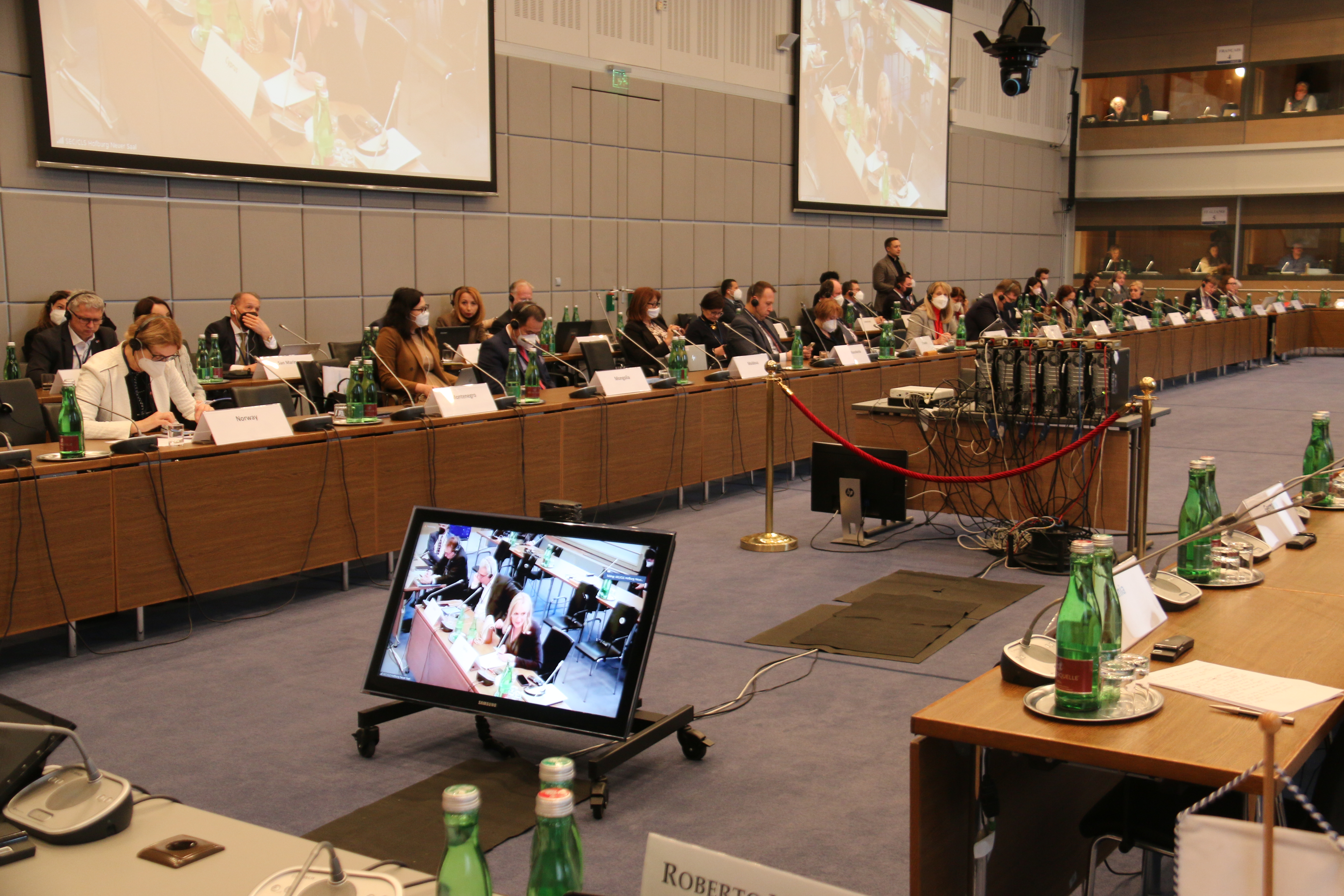Poland

BRIEFING – Contesting Russia: Lessons from Cen...
Oct 23, 2024Cannon House Office Building, Room 210 Stream live here For years, the countries of Central & Eastern Europe have been a critical warning system for the rest of Europe, sounding […]

Helsinki Commission Advances Human Rights, Demands f...
Oct 19, 2023By Shannon Simrell, Senior Policy Advisor Between October 2-13, 11 Helsinki Commission staff joined approximately 1,400 representatives of OSCE participating States (pS) and civil society representatives in Warsaw, Poland in […]

OSCE’s 2022 Ministerial Council in Lodz: Russia Isol...
Dec 09, 2022By Janice Helwig, Senior Policy Advisor, Demitra Pappas, Senior Advisor Department of State, Shannon Simrell, Representative of the Helsinki Commission to the U.S. Mission to OSCE Foreign Ministers and senior […]

European Energy Security Post-Russia
Jun 07, 2022Russia is weaponizing energy to prolong its unlawful invasion of Ukraine. Unfortunately, the sanctions that Europe and the United States have put in place have not been enough to curb […]
European Energy Security Focus of Upcoming Helsinki ...
Jun 02, 2022WASHINGTON—The Commission on Security and Cooperation in Europe, also known as the Helsinki Commission, today announced the following hearing: EUROPEAN ENERGY SECURITY POST-RUSSIA Tuesday, June 7, 2022 2:30 p.m. Watch […]
Supporting Ukrainian Refugees
May 25, 2022More than 6 million Ukrainians have had to flee their country due to Russia’s brutal war of aggression. Most have entered bordering EU states, with more than half of those […]
Support for Ukrainian Refugees to Be Discussed at He...
May 20, 2022WASHINGTON—The Commission on Security and Cooperation in Europe, also known as the Helsinki Commission, today announced the following hearing: SUPPORTING UKRAINIAN REFUGEES U.S. Policy and Visa Issuance Wednesday, May 25, […]
Helsinki Commission Recognizes Key Contributions fro...
Mar 08, 2022WASHINGTON—In light of Russia’s continued criminal war on the peaceful citizens of Ukraine, Helsinki Commission Chairman Sen. Ben Cardin (MD), Co-Chairman Rep. Steve Cohen (TN-09), Ranking Member Sen. Roger Wicker […]

At OSCE PA Winter Meeting, U.S. Legislators Unite wi...
Mar 07, 2022By Ryn Hintz, Max Kampelman Fellow From February 20 – 26, 2022, Helsinki Commission Co-Chairman Rep. Steve Cohen (TN-09) led a bipartisan Congressional delegation to the Winter Meeting of the […]
Chairman Cardin, OSCE participating States Commit to...
Feb 15, 2022By Ryn Hintz, Paulina Kanburiyan, and Worth Talley, Max Kampelman Fellows, and Shannon Simrell, Representative of the Helsinki Commission to the U.S. Mission to the OSCE On February 7 – […]

